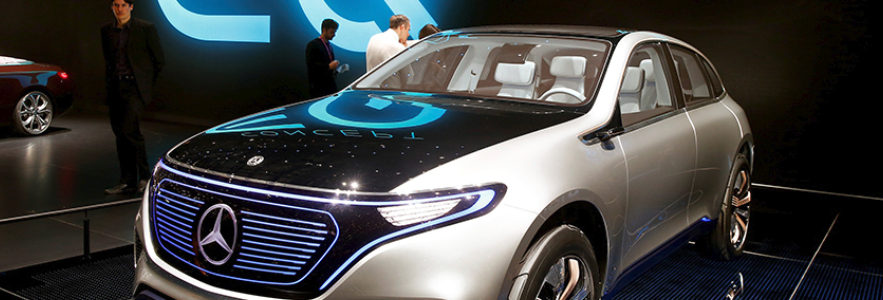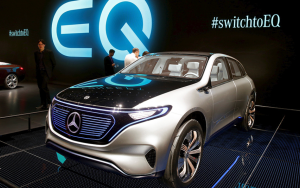
Fight for Robo-taxis

US car sales could strink from more than 17m last year to just 11.5m by 2025, about the same level seen in 2008-09 which caused GM and Chrysler to go Bankrupt and Ford to suffer a £11.2bn ($14.6bn) loss.
GM after celebrating the world’s largest carmaker for the 76th straight year in 2007 on £19.25bn ($25bn) cash went bankrupt 18 months later.
The potential rise of shared driverless “robotaxis” which is expected to become mainstream in some large cities within the next eight years. The new market which is virtually non-existent today, promises to be a revenue spinner of £1tn ($1.3tn) to £2.15tn ($2.8tn) by 2030 and could be the “biggest business opportunity since the internet”, if the carmakers were to gain expertise in self-driving algorithms, in-car entertainment, streaming services and fleet management for ride-hailing.
Waymo, the Alphabet self-driving unit that began as a Google project, is seen as the market leader, with at least 600 of its vehicles driving more than 25, 000 miles a day. In 2017, Morgan Stanley valued Waymo at $70bn and revised it valuation to $175bn after taking into account the potential for Waymo to license its technology. Last month Jefferies valued Waymo $250bn, which is more than GM, Fiat- Chrysler, Honda, GM and the electric carmaker Tesla combined. Brent Thill of Jefferies said “ I firmly believe that within the next five years the majority of carmakers will come to Google and say “ we need your help”.
Once the Robotaxis become mainstream, Alphabet can collect data from Google Maps and search, entertain with YouTube and the Play Store, office advice through Google home smart speakers and use its software to manage fleets and influence advertising, the media and the entertainment business.
BMW and Mercedes have joined forces, while Ford has linked with Volkswagen, in 2006, GM paid $500m for a stake in Lyft and spend $1bn to buy Cruise, a self-driving company with Softbank and Honda buying stakes , Cruise’s valuation leapt to $14.6bn. Then there is data value chain companies who specialises in software, sensors , data processing and navigation all vital for autonomous cars to function properly.
New players include Israeli company Iguazio, which specialises in real time data processing for ride-hailing apps, and Brodmann17, an Israeli company that uses machine learning to cut down the computing power needed to digest the data. Foresight Automotive whose four camera system, can detect obstacles in all weather conditions . Mighty AI, a Seattle-based start-up which helps autonomous vehicle to make sense of raw data by detecting objects and labelling them.
Via, a US ride-pooling app founded in 2012, has collected data from 50m rides across the world, which enabled them to match cars with passengers quickly, and ensure they are fuelled or charged at optimal times. Via has partnered with Daimler in Europe.
Mobility company database includes 1 180 companies with over 400 companies from Israel alone including Mobileye, the vision group which Intel bought for $15.3bn in 2017 and is developing an open platform for autonomous driving with little help from BMW, Fiat-Chrysler and supplier Delphi and Magna. Super Cruise with its hands-free driving technology with the help of Ushr, which provided GM with 15cm accurate high-definition maps using lidar light detection and ranging technology, covering every major highway in Canada and the US. Ushr managed to compress 130, 000 miles of high-definition maps to a 300 mega-byte file that stays in the car.
